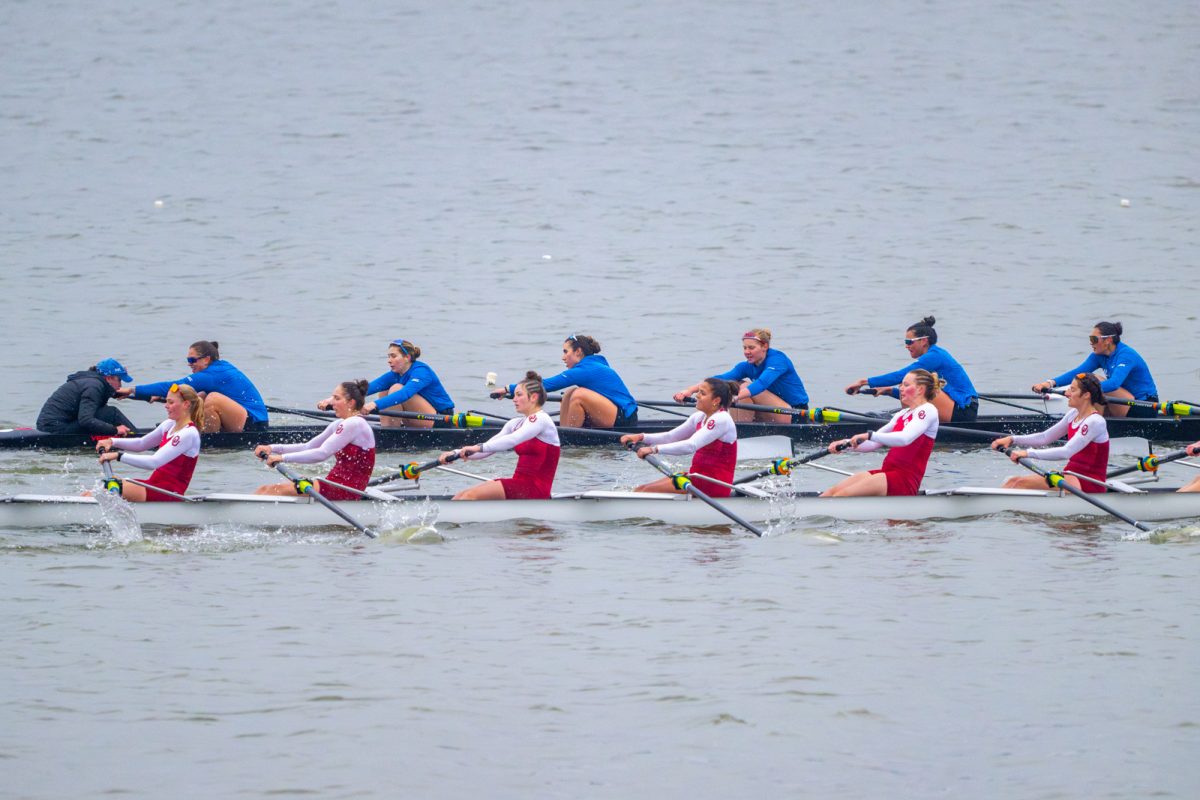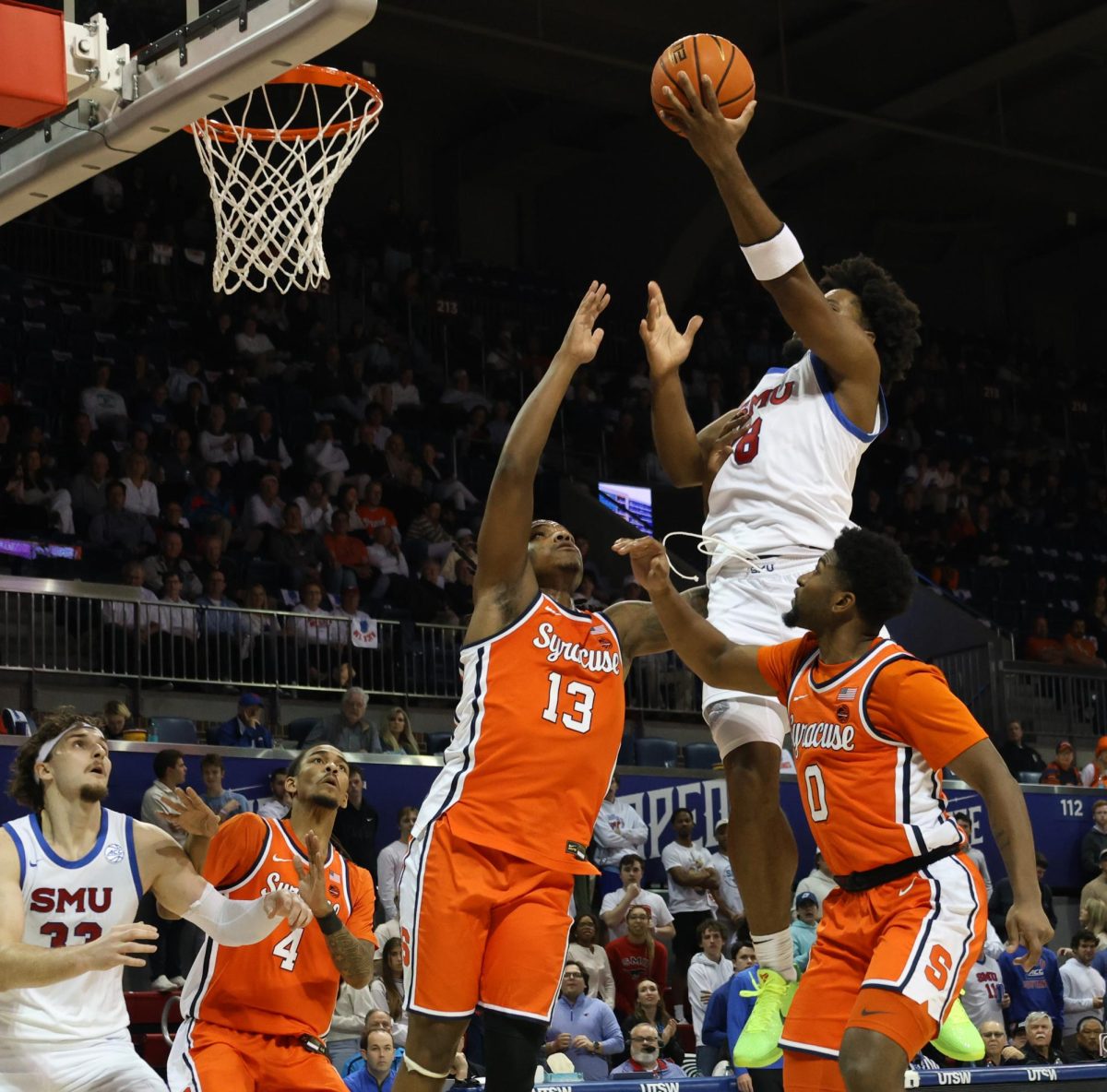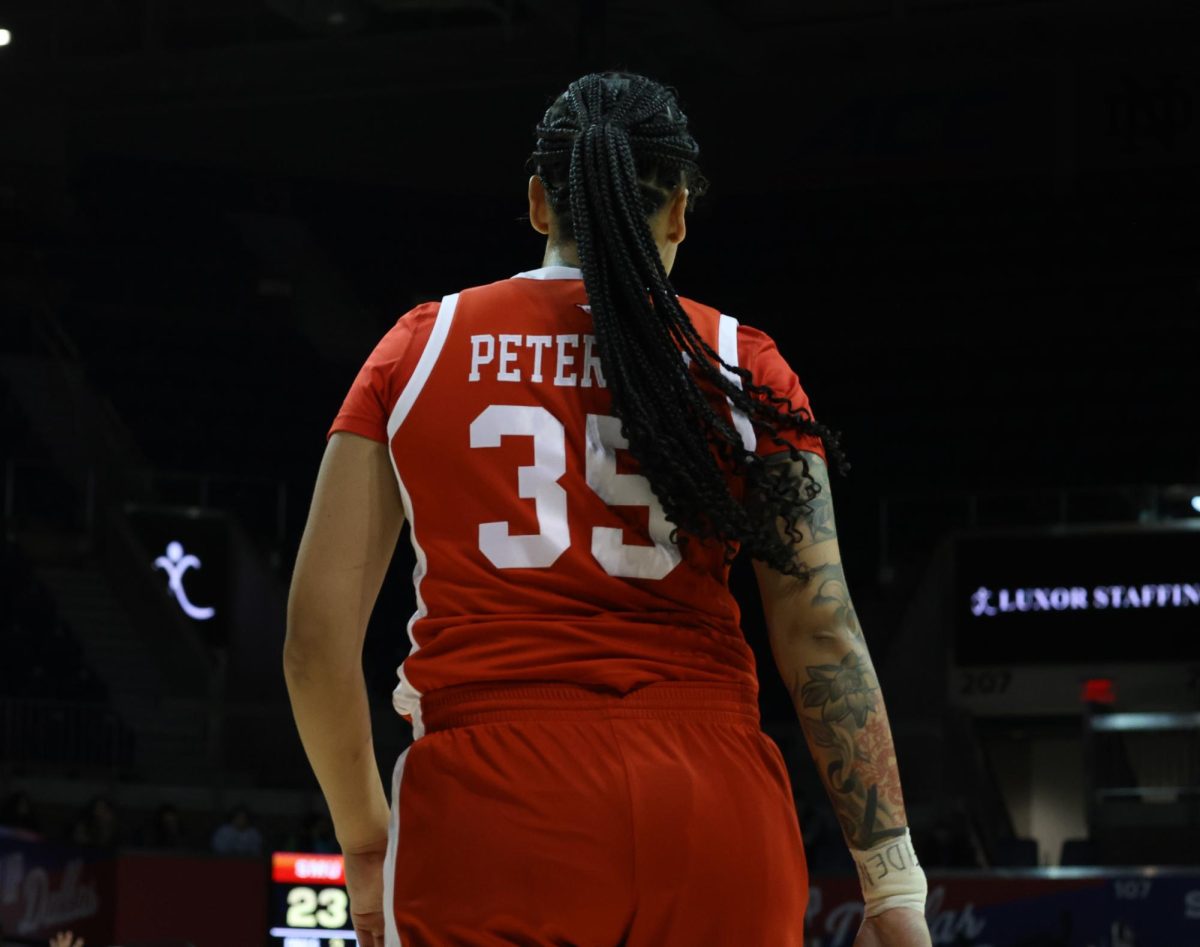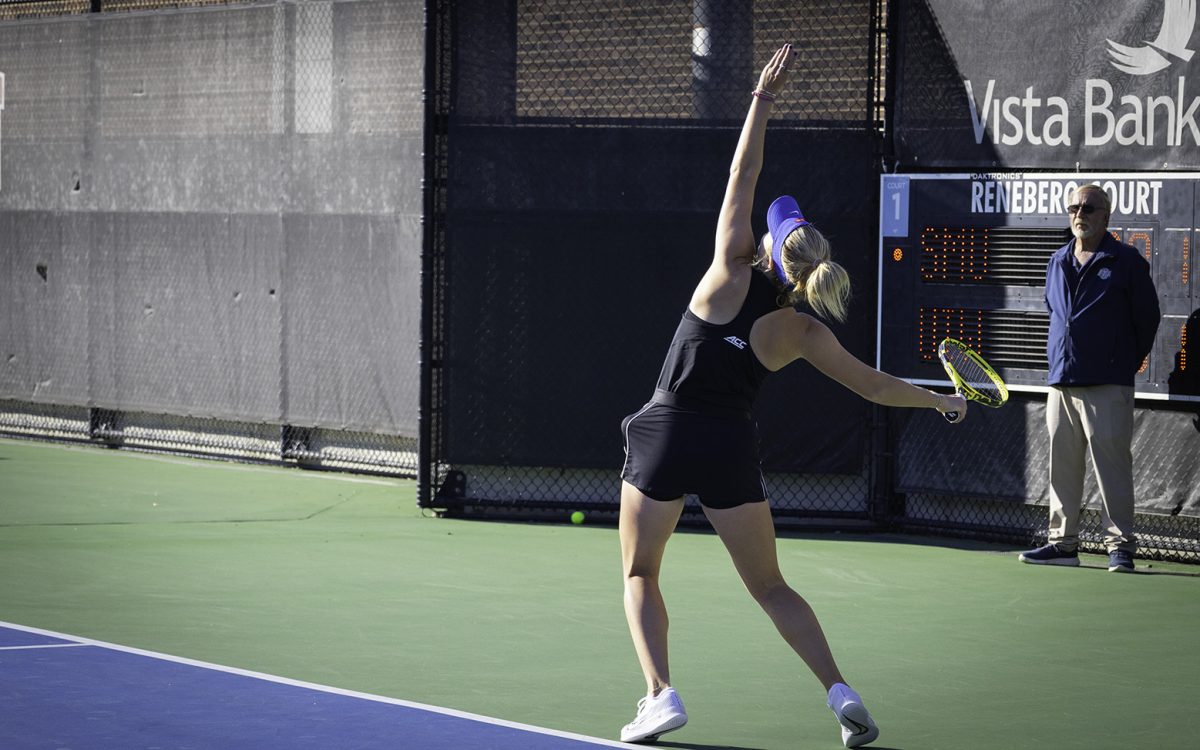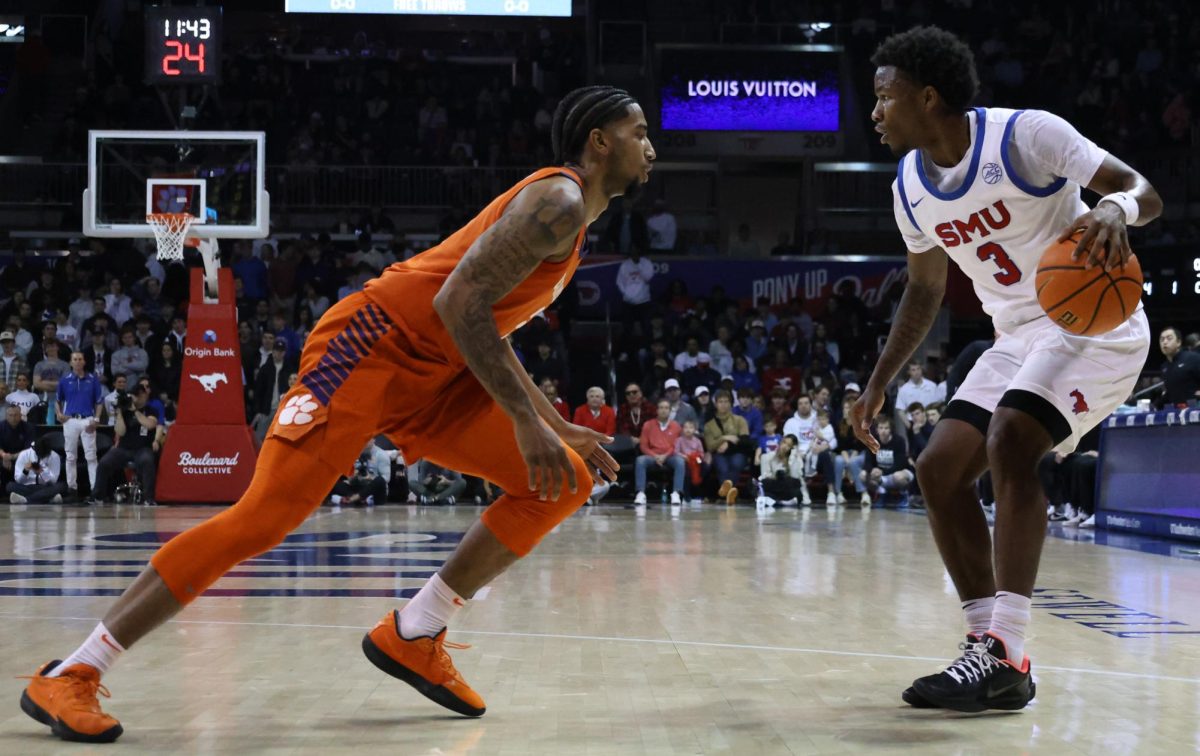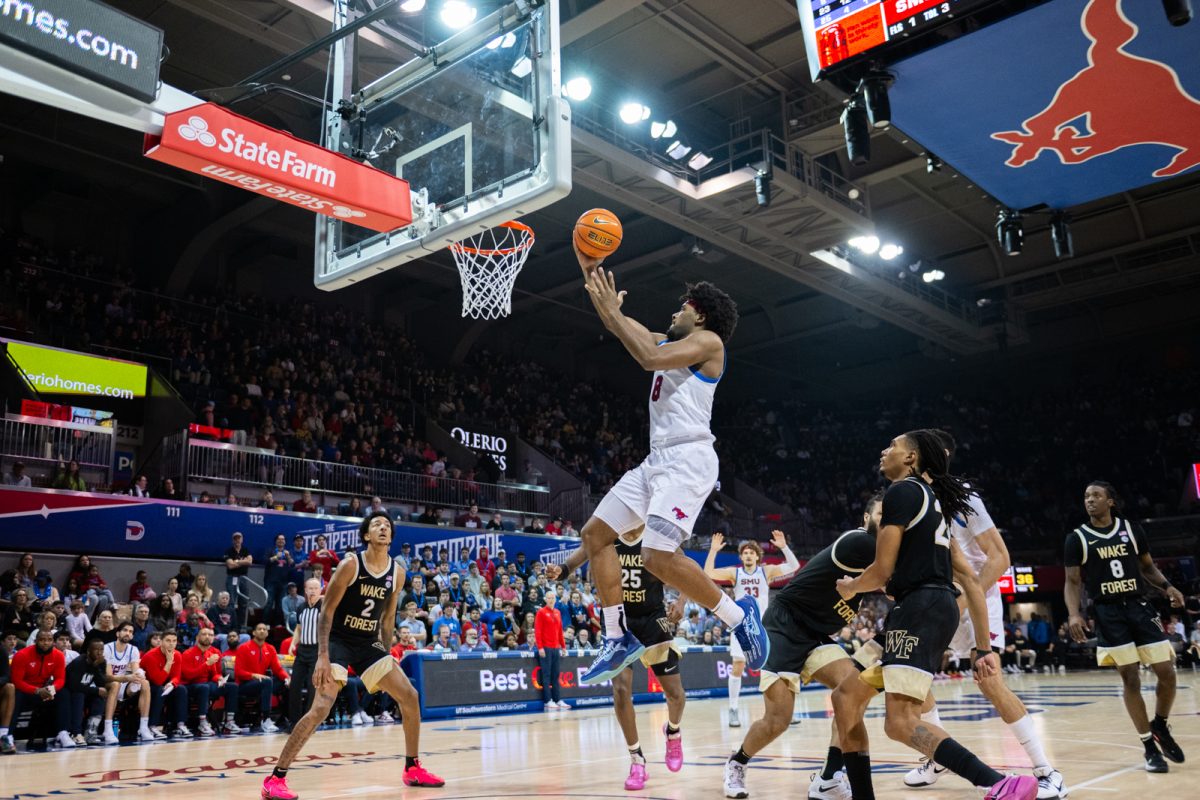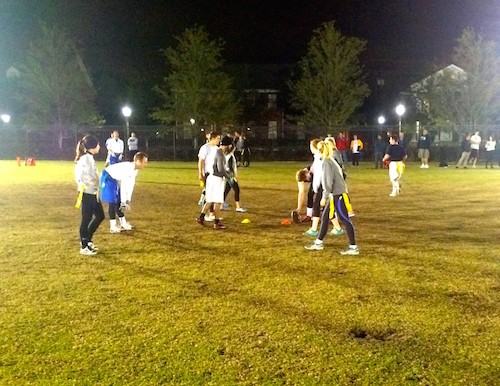
With IDs in hand, students form a line and patiently wait on the intramural field to be checked into the night’s game.
The intramural referee checks his roster, tells the boys to tuck in their shirts and the girls to take off their jewelry.
Players pick up flags and wrap them around their waists.
The line is set, the ball is hiked and the fight for the 2014 SMU Co-Rec Flag Football Champion title is underway.
“Co-rec is more fun because with guys and girls together it makes for a more enjoyable time,” said Julius Henderson, a senior biology major and flag football participant. “But no matter what, we just want to win the championship.”
According to SMU Intramural Supervisor Marin Powell, a senior international studies and sports management major, there are roughly 30 co-rec flag football teams playing in three different leagues this year.
Co-rec teams are made up of both guys and girls. In addition to flag football, there are co-rec basketball, indoor and outdoor volleyball, and indoor and outdoor soccer leagues.
Most open leagues are made up of all-male teams, but females are allowed to participate. According to Powell, the leagues that are offered vary semester to semester depending on the level of interest in each sport.
Under SMU intramural co-rec flag football rules, four girls must be on the field at all times as opposed to open leagues, where there are no gender restrictions.
Although significantly less competitive than the open leagues, co-rec flag football is a unique way to get women participating in the typically male-dominated
sport, Powell believes.
“Co-rec is cool because it gets a lot of people involved. Since we don’t have a women’s league, co-rec provides an opportunity for girls to play flag football,” she said.
During her three years as an intramural supervisor, Powell has noticed the majority of guys who play on co-rec football teams also play on open football teams.
“I think a lot of the guys also play in open leagues but they do co-rec just to hang out with their girl friends,” Powell said. “It’s a little more lighthearted and fun.”
The form requires a roster with team members’ names and ID numbers and a $25 registration fee.
A credit card on file is also required to charge $25 for every forfeited game or missed captains’ meetings.
Forms can be dropped off at the intramural office in the Dedman Center for
Lifetime Sports.
Unlike open leagues, co-rec leagues have specific rules to encourage female players to get involved throughout the game.
The rules allow women to play important, contributing roles on the team while preventing men from taking over.
Team captain of The Playas, Elliott Haifleigh, is a fan of the rules in place.
“I like to think the guys we play with would include us regardless of the rules, but it just does a good job of really making the games more fair,” she said.
There are several rules that help, but the main rule responsible for leveling the co-ed playing field is that every other play is designated as open or closed before the play begins.
When the play is open, anyone on the team can touch the ball.
Typically when a play is open, teams use a male quarterback to throw to another male teammate.
When the play is closed, a female must be involved, either as the quarterback or as the receiver.
The play doesn’t switch back to open again until a woman is used to create forward progress during the closed play.
Additionally, when a woman is involved in a scoring play, the team receives nine points for the touchdown instead of the standard six points earned if a woman is
not involved.
Haifleigh thinks the co-rec rules in place are extremely beneficial in helping women feel included.
“Without the rules in place I think it would definitely be more intimidating for girls to play with the guys,” Haifleigh said. “The competitiveness of the boys in co-rec leagues might take over and games wouldn’t be as laid back and fun.”
Haifleigh, a senior accounting major and captain of a co-rec team, said she decided to start a team this year to bring her group of
friends together.
Haifleigh’s team, The Playas, was the number one seed going into the playoffs this year. The team is an example of a group of friends who use intramural flag football as a time to hang out, catch up and get a workout in.
“I really put the team together to spend more time with my friends,” Haifleigh said. “There are only four girls on our team and we’re all best friends. We used to be roommates, so flag football gives us an excuse to come together once a week since we don’t see each other as much
this year.”
Cheering from the sideline during a recent playoff game, Tyler Steudel, a first-year accounting major, came out to show his support for an on-campus group he’s involved with.
Although he chose not to participate firsthand, he got involved by cheering on his team.
“I’ve done a lot of things with the East Asian Student Association so I’m just here to support the club,” Steudel said.
The 16-seed East Asian Student Association team was taking on The Playas in the second round of the playoffs. Although The Playas eventually came out on top, with the EASA Pandamorium going in as the underdog, Steudel felt his support from the sideline was more important than ever.
“I’m having fun watching them go against the number one seed because I heard it was going to be pretty brutal,” Steudel said. “But they’re holding it back pretty well.”
As a participant on both co-rec and open league teams, Henderson, who also plays for The Playas, believes the level of football skill and technique is what differentiates co-rec from open league games.
“With the guys it’s a little different because it’s a lot about the strategy, it’s not just about having fun,” Henderson said. “Of course we want to win no matter what team we’re on, but the open league is just more focused on the little details.”
In co-rec games, when flags are torn off, players from the opposite team will often pick them up off the ground and hand them back to their opponents.
According to Powell, the competitive nature of the male-dominated open leagues can lead to a lack of sportsmanship.
“I have way fewer problems with co-rec teams than I do with open leagues because co-rec is competitive but it’s not as competitive,” Powell said. “But when you get Greek teams going at it, it’s just a blood bath at points.”



